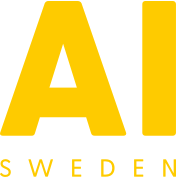Federated Fleet Learning
As the focus on policies and regulations concerning data sharing, security and storage intensifies, conventional centralized AI approaches to model training are anticipated to face mounting challenges. The goal of this project is to develop the edge learning technology needed for decentralized learning in autonomous vehicles, thereby creating the prerequisites for sustainable global solutions in autonomous transportation.

Image AI generated via ChatGPT
Challenges
Today, the training pipeline of AI models for autonomous vehicles typically involves the collection of data, its transmission to a centralized training hub, and the subsequent use of supercomputing facilities to train models. However, this approach faces significant challenges as current and expected regulatory shifts in data collection and international data transfer are likely to render the centralized method even more difficult.
Additionally, the transfer of large data volumes incurs significant costs and delays. Hence, there's a need for innovative solutions to overcome these obstacles and propel the field of autonomous vehicles forward.
Project purpose
This project aims to further develop federated learning for training AI models in autonomous vehicles. Additionally, it will investigate the prerequisites needed for implementing decentralized training solutions. The value will be that each vehicle can act as its own learning pipeline, leveraging onboard resources and only communicating local model improvements to be federated into a global model, while at the same time eliminating the exchange of actual data.
By taking advantage of AI Sweden's state-of-the-art Edge Learning Lab and Zenseact’s and Volvo Cars’ development fleet and expertise, the project is conducted in an advanced, cooperative setting for experimentation and innovation. Furthermore, although the project will be centered in the automotive domain, the challenges addressed and the know-how gained will be applicable to any use case with a large number of agents with embedded compute resources.
Expected outcomes
This project aims at developing edge learning technology to a level where it is ready to use to train AI models in vehicles. The final goal is to generalize the knowledge and know-how generated in the project on what tools, topologies, and system components that should be used in an industrial-scale edge learning system, how to orchestrate the training, and when to expect the performance of the trained AI model to meet requirements. The resulting architecture and design will specifically serve as a basis for participating companies to define the necessary
- requirements for integrating edge learning into the development chain of the future autonomous drive solution
- requirements on hardware performance, for computing and data storage, in the next-generation automotive platform to make edge learning possible
- requirements on a development process for AI models that make use of edge learning
The experience and generalized know-how gained in the project will later be disseminated by AI Sweden using its mechanisms for sharing and transfer of knowledge to related applications and current research in space, healthcare, and more.
Facts
Funding: Vinnova
Total project budget: 5 462 500 SEK
Project period: January 2023 – August 2025
Participants: AI Sweden, Volvo Cars, and Zenseact
AI Technology
Decentralized learning is the underlying technology of this project. In the following video, we explain how AI Sweden utilizes decentralized learning in a nutshell.
For more information, contact


